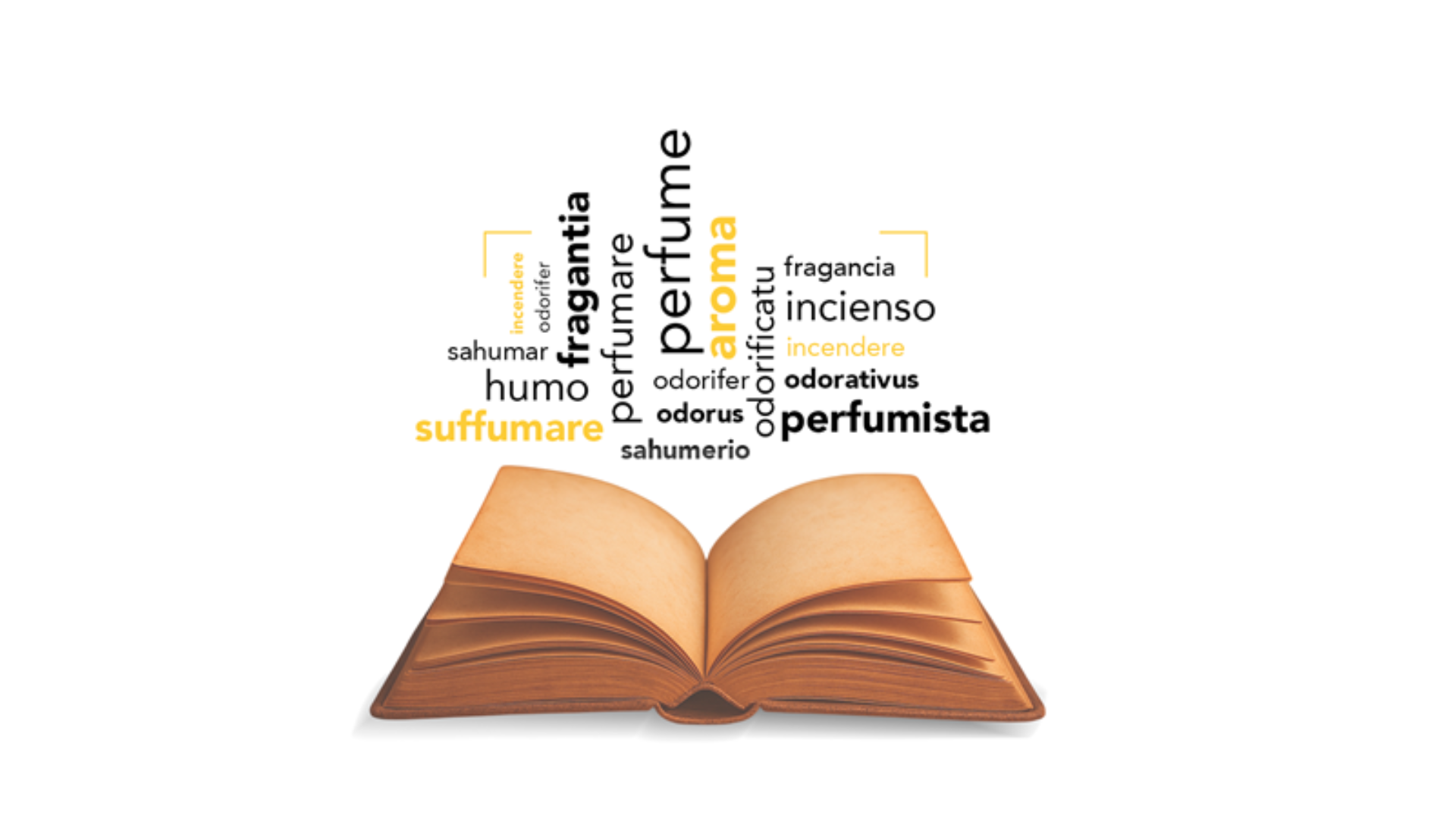To be interested in something also implies being interested in the words used to talk about it. In its mission to promote perfume culture, the Perfume Academy has been working for some time on different initiatives that aim to bring the words used when talking about perfume closer to non-specialists. In 2023, it published its "Dictionary of Perfume," a compilation of the most common terms accessible in digital format on its website.
In parallel, she wanted to delve into other topics related to perfume vocabulary. When comparing the definitions of some of the terms with those offered by general dictionaries, the distance between the definitions of perfume given by the Perfume Academics and the definition of the word perfume in the Dictionary of the Spanish Language of the Royal Academy was surprising.
Some terms frequently used when talking about perfume do not appear in general dictionaries, or the use of very common words is not explained, as is the case of note, for example, which is so basic to the composition of perfumes.
In its eagerness to delve into the subject, the Perfume Academy contacted Elena Varela Merino, PhD in Spanish Philology, to collaborate on the preparation of a technical report that would answer the questions that arise when comparing our knowledge of words related to perfume with the treatment they receive in general dictionaries.
The result is an extensive study divided into two parts. The first explains which voices make up the "lexicon of perfume," raises general questions about its origin, discusses characteristics of the essential dictionaries to understand what can be expected from the treatment of perfume voices, and explains how the study was carried out.
The second part analyzes how the more than one thousand selected words are treated in the Diccionario de la lengua española and draws a series of conclusions that have allowed us to understand what we should not expect and what we should expect from the way a general dictionary reflects the use of the words we use in our field. The Perfume Academy now makes an excerpt of the study available to all interested parties.
Perfume is not only enjoyed through the sense of smell: it is also shared and transmitted through words. Expressions such as "accords," "olfactory families," "top notes," or "sillage" are part of a vocabulary that, although common among experts, is sometimes complex for the general public. With the publication of "The Lexicon of Perfume. A Study for the Perfume Academy", the reader is invited to discover the origin of this specialized language from a cultural and accessible perspective, which translates technical codes into a close and understandable narrative.
The report traces and documents the first appearances of words related to perfume, from the etymology linked to smoke, fumum, and offers a fascinating journey through centuries of linguistic history. It points out that evidence of the use of the verb perfumare would be much earlier than the noun, and that there were several forms of the noun such as perfumerio, perfumo, or perfum before arriving at the current perfume.
It includes curiosities such as the inventories of objects and perfumed products of Isabel la Católica or literary references such as La Celestina, where the protagonist, in addition to being a procuress, was also a "perfumer."
The research also explores how the lexicon of perfume has been nourished by other languages, by loanwords, Arabisms and technical terms, foreign words, words derived from proper names, even from the synesthetic use of words unrelated to smell.
## **Perfume: Art, Science, and Culture. The Gap Between Connotative Definitions and General Dictionaries.**
The study helps to understand the gap between the wealth of nuances and emotionality of the definitions of the Academics of Perfume or the Academy of Perfume's own "Dictionary of Perfume" and the simpler, more denotative definitions of general dictionaries, resetting the expectations of perfume enthusiasts.
The report "The lexicon of perfume. Study for the Perfume Academy" is now accessible on the Perfume Academy website free of charge, open to anyone interested in reading it, along with the recording of the latest session of the webinar "Perfume Fridays" dedicated precisely to this study.
